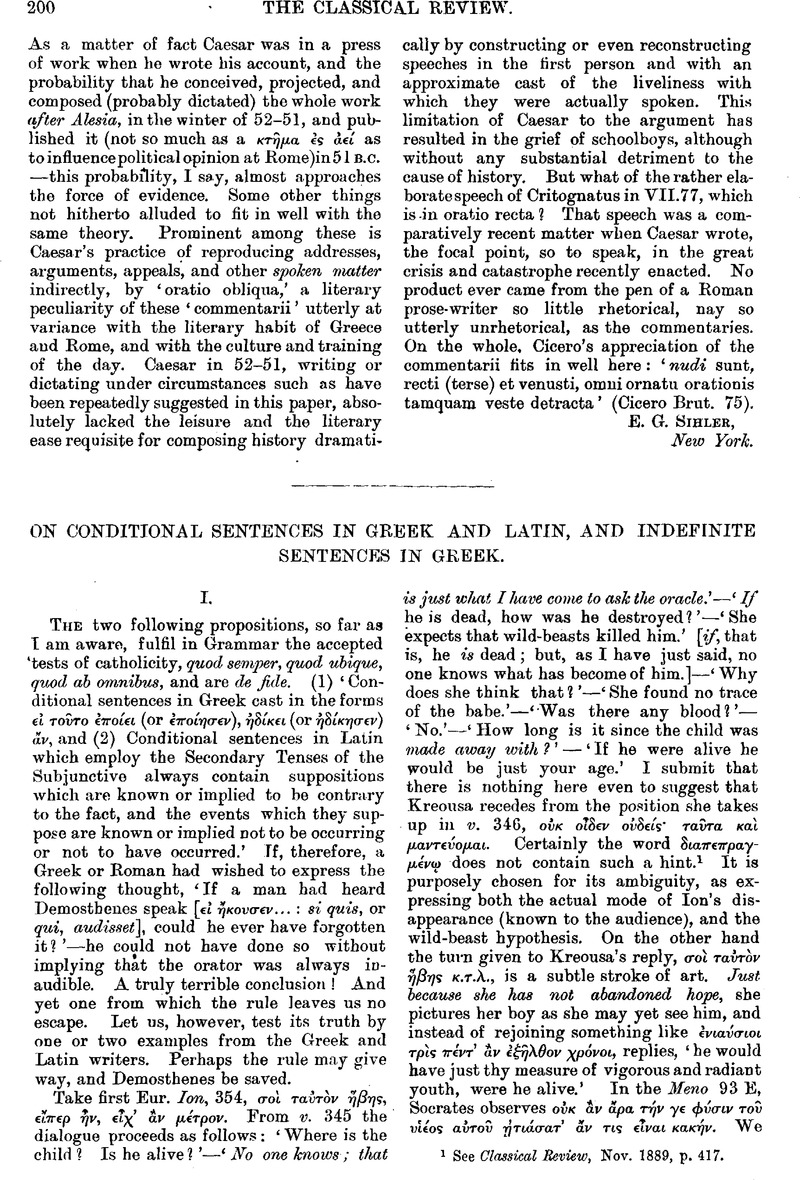Article contents
On Conditional Sentences in Greek and Latin, and Indefinite Sentences in Greek
Published online by Cambridge University Press: 27 October 2009
Abstract

- Type
- Review Article
- Information
- Copyright
- Copyright © The Classical Association 1890
References
page 200 note 1 See Classical Review, Nov. 1889, p. 417.
page 201 note 1 It is independent knowledge too which guides the hearer as to the conclusion intended to be drawn from the hypothetical statement. Thue. i. 9 writes 
page 202 note 1 This explanation accounts for the use of 

- 1
- Cited by


